Yacht chartering is a market that has grown significantly in the past decade, with a substantial increase in both the number and variety of charterers and their expectations, and the number of yachts available in this lucrative industry.
A cruise on board a quality superyacht offers an experience that combines the highest levels of privacy, flexibility, comfort, and service. To be truly successful a yacht charter should be tailor-made to suit the individual tastes of the guests’. This encompasses everything from the style of the yacht to the choice of cruising ground, to the itinerary, activities, and atmosphere onboard.
- What Income Can I Expect From Chartering?
- What Type Of Yacht Is The Most Popular For Charter?
- What Are Charter Rates?
- Can Yacht Chartering Offset My Yacht's Operational Expenses?
- How Do I Reach Potential Charterers?
- Who Will Manage The Yacht For Charter?
- What Do I Need For A Yacht Charter Other Than The Yacht Itself?
- Do I Need A Full Time Crew Onboard?
- So, Where Do I Start?
What Income Can I Expect From Chartering?
The income a yacht owner can expect from chartering their yacht varies based on factors such as the yacht's size, type, location, crew quality, amenities, and market demand. On average, yacht owners can earn between 5% to 15% of the yacht's value in charter revenue per year, but this can fluctuate significantly. High-end luxury yachts in popular charter destinations tend to command higher rates and, therefore, generate more income for their owners.

There is a wide variation in the likely revenue from a charter yacht, and prices for a superyacht charter can vary from around USD $48,000 per week to in excess of USD $2,500,000 per week.
In addition to the weekly charter fee, the charterer is responsible for onboard food and drink; this amount is paid in advance and is referred to as the Advanced Provisioning Allowance (APA) with a guide of 30% of the yacht charter fee. The fuel for the yacht and tenders, harbor fees, dockage, and communication expenses will come from the APA 'kitty'.
Depending on the cruising location, VAT may be applicable to the charter cost.
What Type Of Yacht Is The Most Popular For Charter?
A yacht's success in the charter market is primarily determined by the yacht itself.
The charterer's experience is influenced by factors such as the yacht's type, size in terms of guest numbers and facilities, amenities for activities such as watersports, diving, and open-air cinema, and the cruising location.

Some charterers prefer modern motor yachts with every luxury onboard, others appreciate the nostalgia of classic yachts, and some prioritize yacht performance over space. Some look for yachts with a specific purpose, for example, a sportfishing yacht for game fishing, or a catamaran for shallow waters in the Bahamas.
With such a wide variety of yachts available, there's an option to satisfy every taste, making yacht chartering increasingly popular.
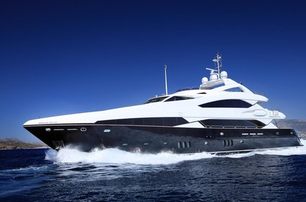
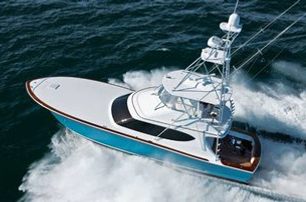
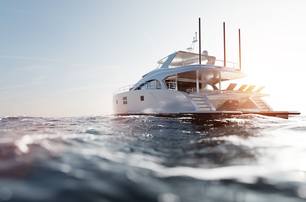
As the owner, your responsibilities are to provide a yacht that is crewed and ready to welcome the charter guests onboard. This includes yacht maintenance, onboard laundry, and all other fixed running costs."
What Are Charter Rates?
- Yacht charter rates are influenced by factors like yacht size, age, builder, onboard amenities, location, and reputation.
- Charters are typically based on a week (seven days), including boarding and disembarking.
- Tax may be added to the charter rate depending on the charter's location.
- Charterers pay an Advance Provisioning Allowance (APA), which covers provisioning the yacht for food, drinks, fuel, berthing fees, shore excursions, and other expenses. It's typically accepted as 30% of the charter fee.
- Gratuity for the crew, usually around 10% of the overall charter fee, is not included and is at the discretion of the charter guests.
- From the charter fee, the broker who arranged the charter and the charter manager, if applicable, receive commissions. Typically, 20% of the charter fee is allocated according to contracts to the central agent (charter manager) and the broker for the client.

Charter rates are generally quoted by the week, with seven days being the standard yacht charter period accepted and quoted by most yachts. Day charters are very rare, as they are considered not worthwhile by owners.
Charters can be longer than seven days, with charters for several months at a time not being that unusual. Longer charter rates are usually considered against the weekly rate, with negotiation for a discount on the length of the booking taking place.
You could consider chartering your yacht for less than seven days, depending on the situation. For instance, you could offer a long weekend charter to fill a gap, or take advantage of quieter periods in the low season, or for special sporting events such as the Monaco Grand Prix.
The peak seasons are the summer season of July, and August then Christmas and New Year, and this is when rates are usually higher. You may also consider mid-season rates for June and September. Low season rates then apply to all other months that the yacht is available.
There is also the option to quote the same rates all year round but with the willingness to negotiate off-peak.
Can Yacht Chartering Offset My Yacht's Operational Expenses?
Chartering can often offset a yacht's operational expenses, but it depends on several factors.
The size of the yacht, its location, the demand for charters, and how frequently it's chartered all play a role. With careful management and a well-maintained yacht, many owners find that chartering can help cover some or even all of their operational costs, making yacht ownership more financially sustainable.
However, it's essential to work with experienced charter brokers and maintain high standards to attract charter clients and maximize revenue.
As a rule, if your yacht is paying 50% of its running costs through revenue for charter, you are doing quite well."
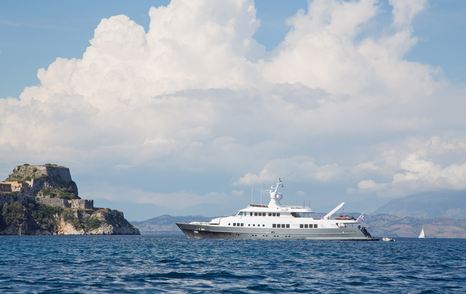
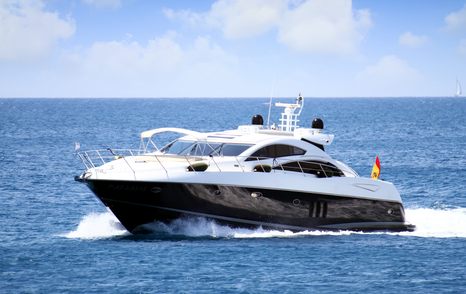
Charter seasons are short, often coinciding with peak periods when you, as the yacht owner may want to use your yacht.
In the Caribbean, yachts are typically chartered for two to four weeks annually, while in the Mediterranean, demand is higher, with the charter season lasting four to twelve weeks during the European summer.
On average, a charter yacht may get eight to ten weeks of charter revenue, which falls short of covering the full 52 weeks of operation. Therefore, chartering should be viewed as a means to offset a yacht's normal running costs, rather than fully covering them.
However, superyachts exceeding 60 meters are an exception, as their scarcity allows for a more favorable revenue-to-cost relationship, potentially covering 100% of operational costs."
The figures pertain solely to day-to-day operational expenses and do not encompass depreciation, financing costs, major refits, or other expenditures.
Depreciation on a new 60-meter plus yacht can amount to millions annually, highlighting that even with large superyachts, it's unlikely to be a profitable venture overall.
Yacht ownership is undeniably a significant financial commitment, but recognizing and accepting this reality can enhance the enjoyment of the experience.
How Do I Reach Potential Charterers?
As in all things, word-of-mouth and positive client experiences are powerful tools for attracting charter guests. Providing exceptional service and maintaining your yacht to the highest standards can lead to repeat business and referrals.
Capturing the interest of charter guests in the first place can happen through a number of channels, and depending on how hands-on you want to be, there is the popular option of engaging a central agent and a charter manager to handle it all for you.
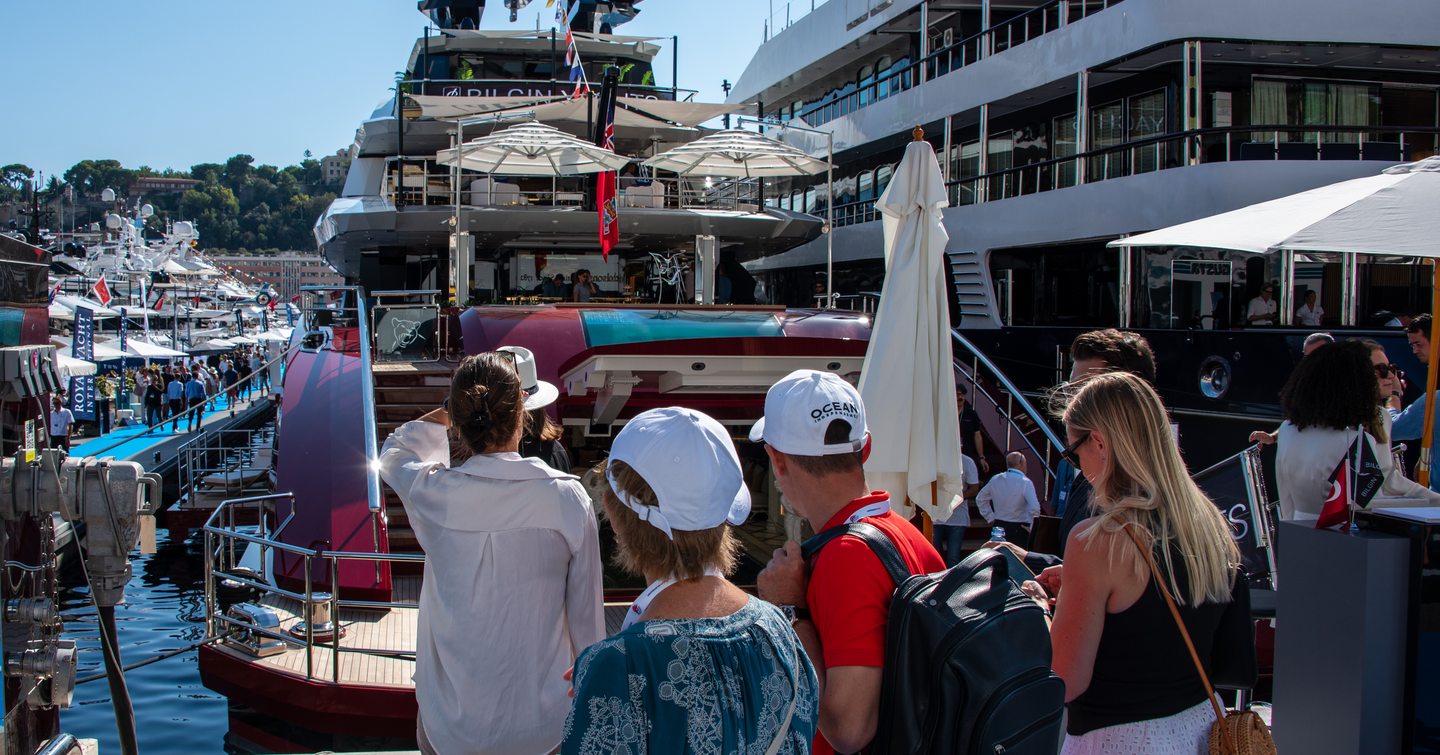
- Charter brokerage agencies: collaborate with reputable charter brokerage firms. They have extensive networks and can match your yacht with potential clients.
- Online listings: list your yacht on popular yacht charter websites and marketplaces. Include detailed information, high-quality photos, and virtual tours if possible.
- Professional website: create a professional website for your yacht with a booking inquiry form. Ensure it's optimized for search engines and mobile devices.
- Social media: maintain active social media profiles showcasing your yacht's lifestyle and experiences. Engage with potential clients and share updates regularly.
- Networking: attend yacht shows, and industry events, and join yacht owner associations to network with potential charterers and fellow yacht owners.
- Marketing collaterals: produce brochures and promotional materials highlighting your yacht's features, amenities, and charter experiences.
- Email marketing: build a list of potential clients and send them regular newsletters with updates, special offers, and charter stories. Ensure your GDPR policy is watertight.
- Reviews and testimonials: encourage satisfied charter clients to leave reviews and testimonials on your website and other platforms.

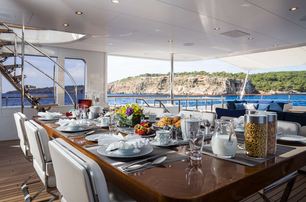
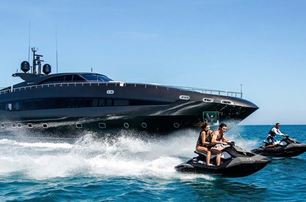
- Yacht charter directories: list your yacht in yacht charter directories and databases to increase its visibility.
- Collaborations: partner with luxury hotels, travel agencies, and event planners who can recommend your yacht to their clients.
- Charter shows and open houses: host open houses, 'broker days', or attend charter shows to allow potential clients to tour your yacht in person.
- Online advertising: invest in online advertising campaigns targeted towards potential charterers.
- Yacht videos: create professionally produced videos showcasing your yacht's interior, exterior, and experiences. Share them on YouTube and social media.
- Engage with charter communities: participate in online forums and communities where charter enthusiasts discuss their experiences and seek recommendations.
- Referrals: encourage satisfied clients to refer friends and family who might be interested in chartering.
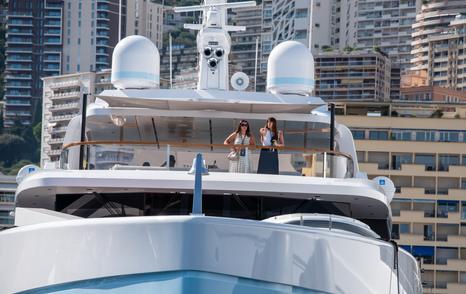
Many yacht owners use central agents, experts in the charter market who have the knowledge, expertise, and resources to make your yacht stand out from the crowd. They will promote your yacht to potential charterers at the right time, all over the world. They will manage all the bookings, inquiries, charter contracts, and payments related to the charter.
A strong marketing strategy is important. You will want top-quality photography and video, a web presence, magazine advertising, media coverage, and industry promotion.
You certainly shouldn’t underestimate the importance of exposure to charter brokers. As they have such a strong influence over a client’s choice of yacht, exposure to them is in many ways more important than direct exposure to a client. If they take a dislike to your yacht, it might not even make it into the shortlist of yachts they present to their client.
Who Will Manage The Yacht For Charter?
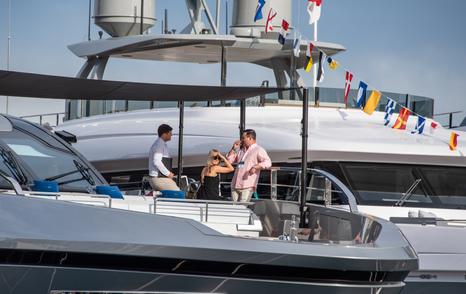
Successfully managing a charter yacht relies on well-connected and experienced charter managers, who work for the central agent. Central agents serve as the crucial link between the retail charter team, the yacht's captain, and the yacht owner.
The charter manager, representing the central agent, is assigned to oversee one or more yachts under charter management. Their role involves facilitating the charter process, handling inquiries and contracts, and coordinating with the crew, captain, and owner.
Charter managers also work to promote and market the yacht, enhance its visibility, and manage everything from booking to logistics and the yacht's calendar.
What Do I Need For A Yacht Charter Other Than The Yacht Itself?
To succeed in the charter market, a yacht should have a highly trained crew experienced in providing the best guest experience possible. See below and our related articles.
It is well known that many charter guests follow the good and may make a choice between a number of yachts based on the chef and the sample menu.

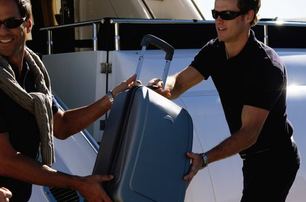
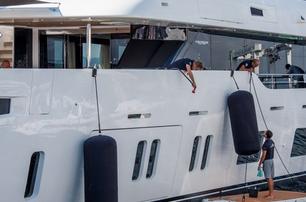
In addition to the crew, the yacht should be well maintained to 'showroom standard' at all times, complete with modern amenities, including outdoor entertainment facilities, advanced audio-visual equipment with on-demand movies and music systems, private cinema rooms, outdoor cinema setups, and the latest water toys.
Developing well-thought-out itineraries that cater to guest preferences and interests while adhering to local regulations and attractions is important so the yacht being placed in fashionable sought-after destinations is ideal.
These features enhance the guest experience and make the yacht more appealing to potential charterers.
Do I Need A Full Time Crew Onboard?
A charter yacht typically requires a professional crew to ensure the safety and comfort of charter guests and to provide a high level of service. The crew's composition and size depend on the yacht's size and the services offered, but commonly, a charter yacht crew includes:
- Captain: responsible for navigation, safety, and overall management of the yacht.
- Chef/cook: prepares gourmet meals tailored to guest preferences.
- Steward/stewardess: manages guest services, including housekeeping and serving meals.
- Deckhands: assist with yacht operations, maintenance, and water sports activities.
- Engineer: maintains and repairs the yacht's systems and machinery.
- Host/hostess: enhances the guest experience with personalized service.


Larger and more luxurious yachts may have additional specialized crew members, such as masseurs, dive instructors, or fitness trainers.
The crew's expertise ensures a safe and enjoyable charter experience for guests, and their roles extend beyond just sailing the yacht; they provide hospitality, culinary excellence, and assistance with various onboard activities.
It is standard practice to keep a superyacht crewed all year round, regardless of activities. Often your yacht insurance and Flag State will demand a minimum of crew remain on board at all times for safety reasons.
The crew plays a vital role for the owner. They take care of the day-to-day maintenance of the yacht, act as onboard security, and, on charter yachts, plan to create amazing charters that can result in repeat business.
In the off-season, you can decrease your crew from a full complement to a more skeleton operation, but an astute yacht owner will make sure their key people are kept on throughout the year."
So, Where Do I Start?
Once you decide to charter out your yacht and have assembled the right crew, appointing a knowledgeable yacht charter manager may become essential.
They can assist with legalities, marketing, rate determination, and strategic positioning for optimal outcomes in the charter market.
While owning a yacht can be expensive, it's essential to set aside time for your enjoyment to fully appreciate the investment you've made.










